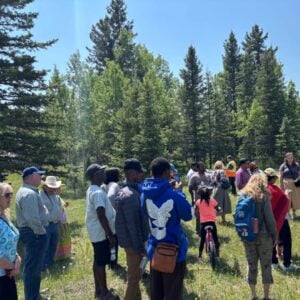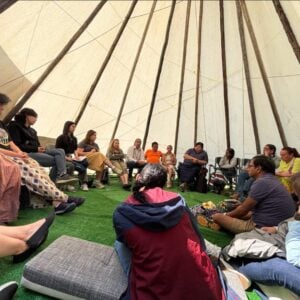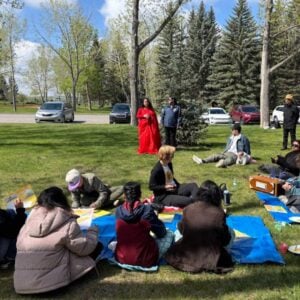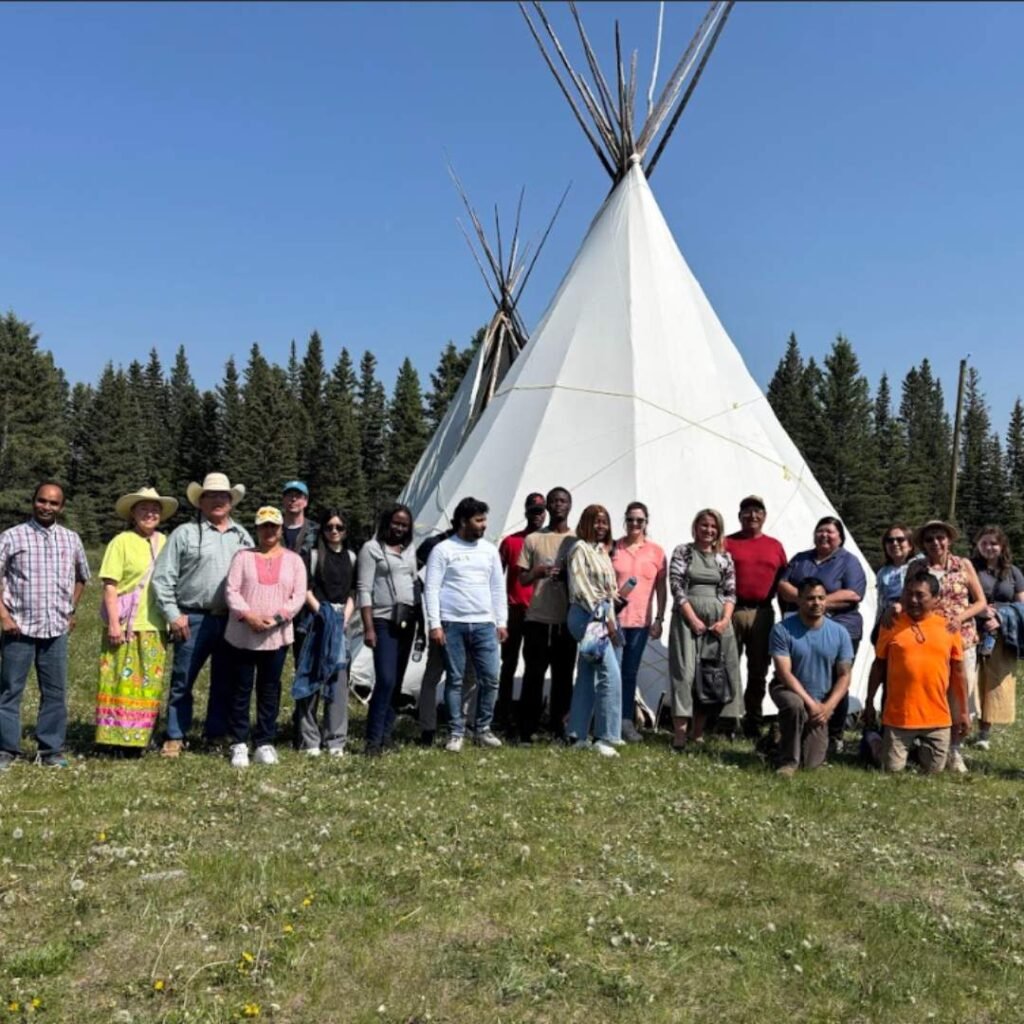


In spring 2025, the Dream for Better Tomorrow Foundation held a series of climate-adaptation events, focusing on land-based indigenous teachings. Over 80 people joined, including Indigenous youth, Black youth and young immigrants. For many of them, this was the first time they felt truly included in conversations about climate change and their own lived experiences.
These gatherings happened in Nose Hill Park and North Glenmore Park and were led by Indigenous Elders. They used storytelling, traditional teachings and collaborative art projects.
One of the events was an art showcase where different cultures came together. People shared their experiences and knowledge about climate change through different art forms like painting, sculpting, singing and dancing. An Indigenous Elder started by sharing traditional knowledge about the land and their own experiences. It was a creative way to learn, share ideas and understand different views on climate change.
The Indigenous Elders also talked about Indigenous seasonal knowledge, traditional land use, and relational teachings. These ideas help people adapt to climate change, and its effects on ecosystems, weather and food security. These teachings helped the youth see the role they play. They learned how they can be better “climate stewards” in their neighbourhoods and communities.
One Canadian youth, who immigrated from Bangladesh, shared, “This is the first time I felt I could connect my family’s climate fears back home with something here in Canada. I didn’t know climate justice could be a shared language.”

Through this project, youth learned how climate risks, like extreme heat or damage to ecosystems, are more than just numbers. They learned through building relationships – with the land, with Indigenous teachings and with each other. This project helped the youth build resilience, inspired young leaders to protect the environment, and opened a conversation about how diverse ideas and land-based knowledge can improve our responses to climate change.
This project is a great example how community-led and culturally-based projects can foster a greater sense of belonging, amplify underrepresented voices, and create intergenerational solutions through shared environmental stewardship.
Want more from ClimateReadyYYC?
Click below to see more stories, project ideas and grant information.
